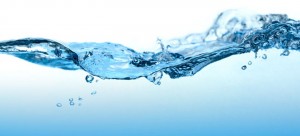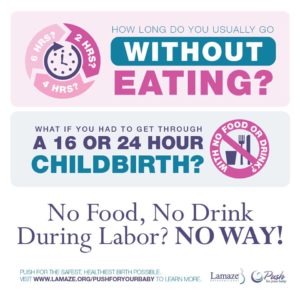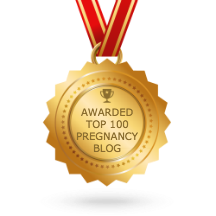Nothing By Mouth
So many women, 60%, are told by their hospitals, nurses, and doctors that they should have no food during labor and nothing to drink. This is a perfect example of one of those hospital policies that has perpetuated for years and years but is not based on medical evidence. The policy is “NPO” which is defined as nothing by mouth and comes from the Latin Nil (nothing) Per (by) Os (mouth).
Labor is an Athletic Event
Dr. Robert Bradley called labor and birth and “athletic event.” Just like running a marathon, or hiking, or any kind of extended physical demand on the body, labor is demanding on the body as well. One of the strongest muscles in the human body is the uterus, and since it is made up of muscle tissue, it needs energy and fuel, just like your body needs during any demanding physical activity.
You Need Carbohydrates, Protein, and Fats
We do know from research in sports nutrition that carbohydrates are essential energy and fuel for the body in any physically demanding situation. Protein combined with carbohydrates and essential fatty acids can be calculated for optimal energy for each athlete depending on the level of physical activity, gender, weight and height of the athlete. Why has this not been considered for women going through labor?
Here are the evidence-based reasons why most women should continue to eat and drink during labor:
- Five studies ncbi.nlm.nih.gov were done on looking at restricting food and water during labor. The Cochrane review https://www.cochrane.org/evidence concluded that “the evidence shows no benefits or harms, there is no justification for the restriction of fluids and food in labor for women at low risk of complications. No studies looked specifically at women at increased risk of complications, hence there is no evidence to support restrictions in this group of women. Conflicting evidence on carbohydrate solutions means further studies are needed and it is critical in any future studies to assess women’s views.”
- After studying both the above 5 studies and adding 5 more studies the Cochrane review found that women who ate and drank during labor had shorter labors by an average of 16 minutes.
- The researchers also found that women who were allowed to eat and drink during labor were more satisfied with their birth experiences.
- A study done in Iran found that women who were restricted from eating and drinking during labor experienced more stress and more pain. Labor hurt more!
- Women felt that they “ran out of energy,” “had no more strength,” and felt hungry from going so long without eating. When you are out of energy in any situation, it is difficult to focus, easy to lose confidence, and easy to give up. You need stamina and sustained energy and fuel to keep going.
- The policy of NPO was established in the 1940’s when women were given Twilight sleep and combination of scopolamine and morphine. They were unconscious during labor and the risks of aspiration of stomach contents was great.
- According to Evidence Based Birth, “The risk of death as a result of aspiration during Cesarean was 0.7 per million births, or 1 death for every 1.4 million births (Hawkins et al. 1997).
- In 2015 The American Society of Anesthesiologists (ASA) concluded that “Nothing By Mouth” is not necessary for low-risk women in labor. “There is insufficient evidence to draw conclusions about the relationship between fasting times for clear liquids or solids and the risk of aspiration during delivery.”
- Neither American College of Obstetrics and Gynecology (ACOG) and the ASA recommend limiting a woman’s intake to ice chips or sips of water.
What foods should you eat during labor?

Carbs, protein, and fats for labor. Photo by Brooke Lark on Unsplash: https://www.woodenearth.com/collections/wood-trays
Remember that labor puts demands on your body similar to those during an athletic event. Yet, during labor, your digestion slows down to a crawl. If you are a low-risk patient – basically you and your baby are healthy and there are no medical issues or complications, research suggests that eating and drinking during labor does not raise your risks. It is always a good idea to discuss eating and drinking during labor with your care provider/doctor/midwife before labor begins. Refer to these research studies and print them out and give them to your care provider.
- Think of things to eat that are light and easily digested. You won’t want to binge on a pizza even in early labor because it may come right back up in transition! Try to combine foods that are high in carbohydrates (not high in sugar) with protein and fats.
- Some good carbohydrates examples are: Quinoa, raisins, oatmeal, milk, yogurt, ice cream, sweet potatoes, fruit (bananas, blueberries, apples, etc.), bread, rice, crackers, beans, chickpeas/hummus, honey, applesauce.
- Fats to eat with the carbs are: nut butter, avocado, small portions of hard cheese, eggs, nuts, coconut oil, full fat Greek yogurt.
- Protein to eat/drink during labor: chicken(early labor), fish(early labor), broth, miso soup, bone broth, eggs, full fat yogurt, nuts, kefir, whey protein smoothie, pea protein smoothie.
What Should You Drink During Labor?
- Water is essential in staying hydrated but women over-hydrate with standard waters and they and their babies have had low sodium and low calcium issues in the immediate postpartum period. Instead drink water with electrolytes. You can also make my “Labor-Ade” ahead. Pour it into ice cube trays and add it to Smart Water or suck on the ice cubes.
- Gatorade is an okay choice. My only opposition to it is that it’s high in sugar.
- Coconut water
- There are so many options on the market for water with electrolytes. Electrolytes are essential for:
- Controlling your fluid balance.
- Regulating your blood pressure.
- Helping your muscles contract — including your heart.
- Maintaining the correct acidity of your blood (pH).
- Another option is Clif Bloks. They are yummy chews with electroytes in them.
Related Content: What to Eat and Drink in Labor
The Take Away:
- Take a childbirth class that teaches you informed consent questions, comfort techniques, and benefits and risks of medical interventions.
- Ask your care provider if they restrict eating or drinking during labor.
- Ask your provider to show you the research that supports this policy.
- Show your care provider the research that does not support this policy.
- If your care provider does not agree, find another care provider who practices evidence-based medicine.











